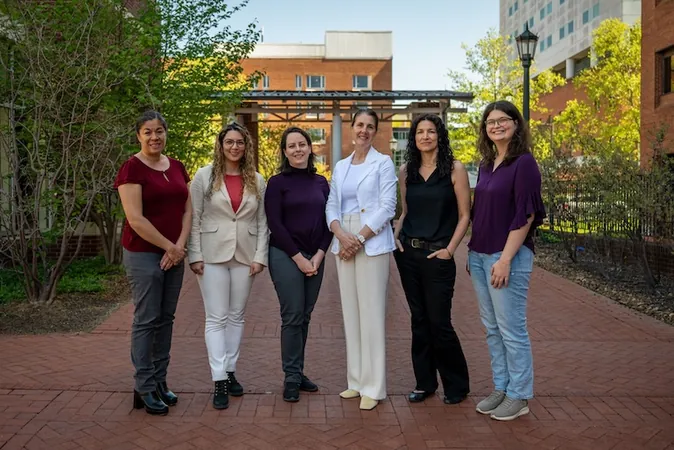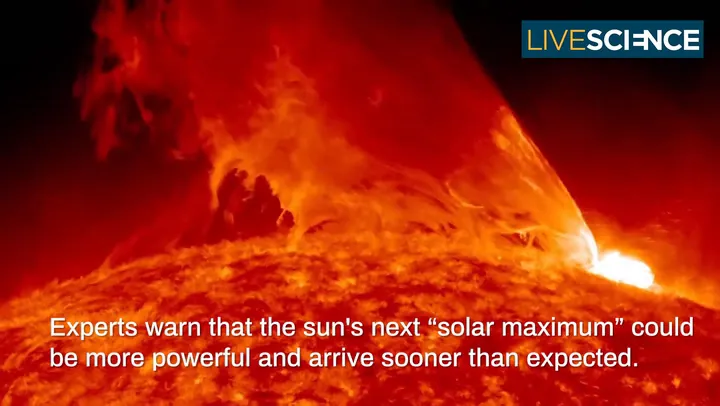
Breakthrough Discovery Sheds Light on Long COVID Breathing Troubles
2025-05-02
Author: Wei Ling
Researchers Uncover Immune System Secrets of Long COVID Patients
In a groundbreaking study, researchers at UVA Health have unveiled crucial insights into why many COVID-19 survivors experience long-term breathing issues. This exciting discovery shines a spotlight on the immune system changes that may be responsible for persistent lung damage in patients suffering from Long COVID.
The study highlights the surprising diversity of immune responses among patients, revealing that even individuals displaying similar symptoms can have vastly different underlying immune issues. This pivotal finding could pave the way for tailored therapies aimed at alleviating lung complications associated with Long COVID.
Linking Immune Data to Lung Injury
One of the study's key innovations was its ability to associate immune data from patients’ blood with the extent of lung injury. For the first time, researchers distinguished between immune patterns in patients with severe lung damage, pioneering a path toward personalized, more effective treatments.
Judith A. Woodfolk, MBChB, PhD, a leading researcher in the study, emphasized the complexity of Long COVID: "This condition can have many different causes, which makes studying the immune response in affected individuals particularly challenging. Our findings reveal critical differences in immune profiles that mirror lung damage, jumping us closer to identifying potential therapeutic targets to predict and treat severe outcomes."
A Deep Dive into Long COVID's Respiratory Symptoms
To explore the persistent respiratory symptoms associated with Long COVID, Woodfolk and her team analyzed comprehensive clinical and immune data from 110 patients treated at UVA’s Long COVID Clinic. Many of these individuals had endured severe cases of COVID-19 prior to the emergence of vaccines and had spent time on ventilators.
Utilizing advanced machine learning techniques, researchers examined long-term changes in T cells, a crucial component of the immune system. Their analysis revealed significant differences in T cell populations based on the severity of lung disease, connecting immune alterations to other elements of the immune response.
The Future of Long COVID Treatments
This study not only deepens our understanding of the immune systems of Long COVID patients but also strives toward developing better treatments. Woodfolk remarked, "By identifying specific immune changes associated with different types of lung injuries, we can enhance our comprehension of how these variations unfold during the disease process."
The ultimate aim is clear: to innovate treatments that could prevent or even reverse lung damage inflicted by COVID-19. The collaborative effort of dedicated physicians, scientists, and patient volunteers was essential to this research, which is just the beginning of a much larger investigation into chronic lung diseases.
Published Findings and Future Directions
Excitingly, the findings have been published in the esteemed journal Nature Immunology, contributing to the ongoing dialogue about Long COVID and its implications. This research not only sheds light on the intricacies of Long COVID but also opens the door to further studies exploring other chronic lung conditions.
With support from notable institutions such as the National Institutes of Health, this study stands as a beacon of hope for patients grappling with the lingering effects of COVID-19.





 Brasil (PT)
Brasil (PT)
 Canada (EN)
Canada (EN)
 Chile (ES)
Chile (ES)
 Česko (CS)
Česko (CS)
 대한민국 (KO)
대한민국 (KO)
 España (ES)
España (ES)
 France (FR)
France (FR)
 Hong Kong (EN)
Hong Kong (EN)
 Italia (IT)
Italia (IT)
 日本 (JA)
日本 (JA)
 Magyarország (HU)
Magyarország (HU)
 Norge (NO)
Norge (NO)
 Polska (PL)
Polska (PL)
 Schweiz (DE)
Schweiz (DE)
 Singapore (EN)
Singapore (EN)
 Sverige (SV)
Sverige (SV)
 Suomi (FI)
Suomi (FI)
 Türkiye (TR)
Türkiye (TR)
 الإمارات العربية المتحدة (AR)
الإمارات العربية المتحدة (AR)